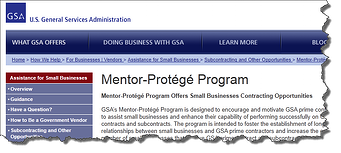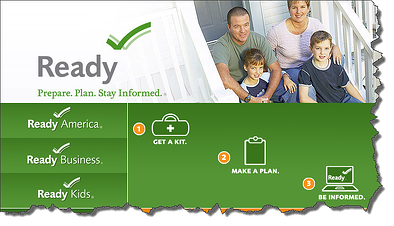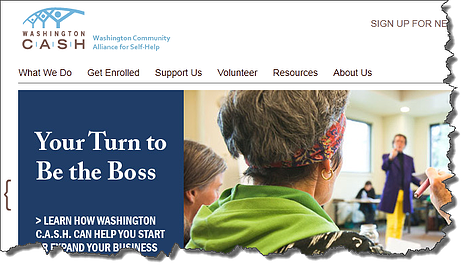Mentorship programs are not advertised on TV, the Internet or radio. Your small business or your soon to be open business has obstacles and you may resort to rubbing a lamp hoping for a Genie to pop out and provide the perfect business advice. Without funds, how can you expect to create a win-win with any business consultant?
You have a strong motivation to start a business or the business you own is not yet successful. You have a vision and your abilities/skills/talents stand out in the marketplace or your product is already in demand. You are strapped for cash because of the crazy economic times and possibly your house has burnt down.
You look at software such as Hubspot and salivate because you know it is the cream of the crop for getting found and getting leads online. But all you can do at this point is use the more basic tools because your resources are slim to none. If only you had a mentor or a guide to get you over the hump.
If you are healthy, willing, talented and a person with a vision who is destined to be a small business owner; there are mentorship programs available.
As a small business owner, you’re frequently adjusting to changing circumstances, new business conditions, and unforeseeable challenges. Being able to consult with a mentor - someone who knows what you’re going through - can be invaluable. A business mentor is someone who’s “been there, done that”; someone with insight into your business type and your specific challenges. Mentors can provide tailored guidance, general best practices, and an example of a successful business that the protégé can learn from.
Having a protégé can be valuable to the mentor as well. It can mean having shared goals, useful connections, and in some cases, a dependable business partner (in the case of a mentor and protégé working together on a contract, client account or other project).
This article offers several useful programs offered by federal agencies and agency partners. These programs encourage and enable mentor/protégé relationships in the private sector.
SCORE

SCORE, one of SBA’s resource partners, is a national organization providing free small business advice and mentoring services to entrepreneurs. More than 13,000 SCORE volunteers counsel new entrepreneurs and existing small business owners through over 300 chapters across the U.S. Members are retired and working business professionals in a variety of fields, who collectively hold a wealth of knowledge and insight in terms of planning, starting and growing a successful enterprise.
If you’re planning a business, or you own an existing business, you are eligible to receive assistance from SCORE.
In addition to matching entrepreneurs to counselors, SCORE offers free online workshops, webinars and other events, oftentimes held at local SCORE chapter locations. SCORE’s web site also contains useful templates and tools to help with accounting, financial projections, and business planning.
Entrepreneurial Mentor Corps
Entrepreneurial Mentor Corps is a recently-launched program associated with the President’s Startup America initiative and supported by SBA, the U.S. Department of Energy, and the Kauffman Foundation. This program provides mentoring for “high growth potential” companies, with an emphasis on new technology firms. Entrepreneurial Mentor Corps utilizes resource sharing between “early-stage” companies and mentors, and facilitates business networking so that the experience is beneficial for all involved. One of the program’s goals is to support 1,000 individual early-stage businesses by connecting them with mentors and accelerator organizations.
U.S. General Services Administration Mentor-Protégé Program
GSA’s mentorship program is designed to enable existing GSA prime contractors to help small businesses perform GSA contracts and subcontracts. The program works to foster long-term relationships between prime contractors and small business contractors. Mentor firms select protégé firms, and both companies may work together on GSA contracting opportunities. Eligible protégé firms must be NAICS-classified small businesses; mentor firms must be large business prime contractors currently performing a subcontracting plan with GSA. To learn more about eligibility, see GSA’s program guide.
Other Agency-Specific Mentorship Programs
Similar to GSA’s Mentor program, many federal agencies offer programs that connect mentor and protégé firms. These programs, often offered through the agency’s Office of Small and Disadvantaged Business Utilization, oftentimes enable large and small contractors to work together for an agency, and in the process, learn from one another.
Below are some of the many federal agency-specific mentor-protégé programs, listed by their respective agency:
U.S. Department of Homeland Security
U.S. Department of Veterans Affairs
National Aeronautics and Space Administration
To find mentor-protégé programs at other federal agencies, referring to this list of Small and Disadvantaged Business Utilization Offices across the government may be helpful.
Ready.gov Mentoring Initiative
The Federal Emergency Management Agency (FEMA) sponsors a program, designed to help managers and owners of both small and medium sized businesses prepare for emergencies. FEMA offers mentorship guides and other preparedness resources on the Ready.gov web site. The program also facilitates workshops and presentations so business owners can work together to be better prepared.
SBA Mentor/Protégé Program
SBA offers this program under the 8(a) Business Development program, which helps disadvantaged Americans achieve entrepreneurial success through training, counseling, and the attainment of federal contracts. Small business owners that qualify as 8(a) certified can join the Mentor-Protégé program as either a mentor or protégé. SBA approves the eligibility of both mentors and protégés, and serves as a mediator and third-party administrator of the relationship. Some of the benefits of this program include:
- Technical and management assistance: the mentor’s resources and capabilities are available to the protégé.
- Government contracting: mentors may enter joint-venture agreements with protégés to compete for contracts.
- Financial Assistance: Mentors may own equity interest in a protégé firm, up to 40%.
Additional Resources
SBA Community Article explaining the GSA Mentorship Program, by Bill Gormley
SBA Community Article “5 Tips for Finding and Working with a Business Mentor
Not to be left out, organizations local to Washington State which offer support:
Washington CASH
For the less experienced the path is "to be determined".
In all cases, the term "mentor" does not mean the business mentor is perfect, has the answers nor understands all there is to know. An apple tree farmer is not automatically an expert on blueberry farming. If, however, you are looking for advice, it is better to talk with an expert who understands what questions to ask, how to create a map and has already achieved success.
Thinking back a bit, the first time sales doubled, I was very surprised. The second time made me a bit cocky. The third time I was anticipating the next steps to take. The fourth time sales doubled, it was not a matter of if; it was a matter of when.
An idea makes it possible but the reality is that everyone could use a guide the first couple times up the mountain.
You can probably find your way. Someone will tell you: "It is not the destination, it is the journey". On the other hand, if it costs you nothing but a little time and there is no risk... why not have a conversation? There may be an easier, faster way.



